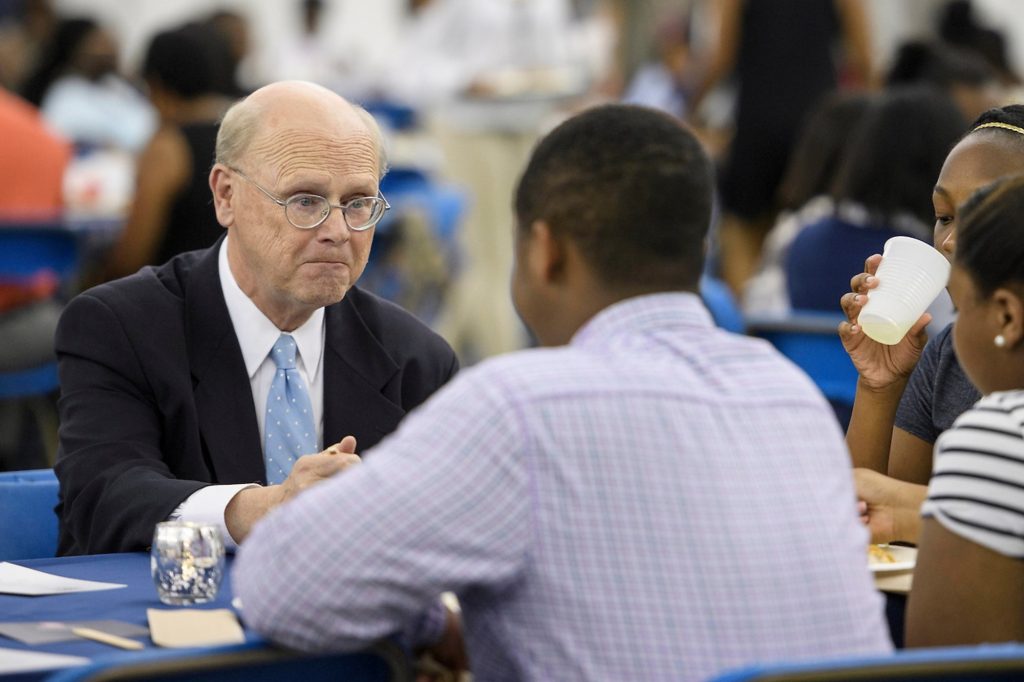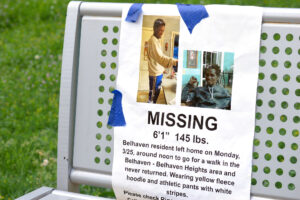Former University of Mississippi journalism school dean Will Norton is returning to his old haunts in a new role in the building where he once ruled. Norton stepped down last year after a group of whistleblowers obtained emails that revealed how he tolerated racist comments about Black women students from a wealthy potential donor, as detailed in this publication’s 2020 “UM Emails” exposé.
On Sept. 14, the Overby Center for Southern Journalism and Politics announced that Norton is joining the center as a senior fellow alongside veteran broadcast journalist Randall Pinkston (who is also a member of the Mississippi Free Press advisory board). The Overby Center is housed in Farley Hall, the home of the journalism school.
“We are fortunate to have two highly accomplished people as fellows,” Overby Center Chairman Charles Overby said in a press announcement on Sept. 14. “They will help strengthen our programs and our commitment to the First Amendment.”
The announcement does not mention the controversy that swirled around Norton last year as detailed in the UM Emails series, but does include quotes from former students praising Norton, including Mississippi Public Broadcasting Executive Director Ronnie Agnew, who said Norton “has literally helped hundreds of students become successful journalists.”
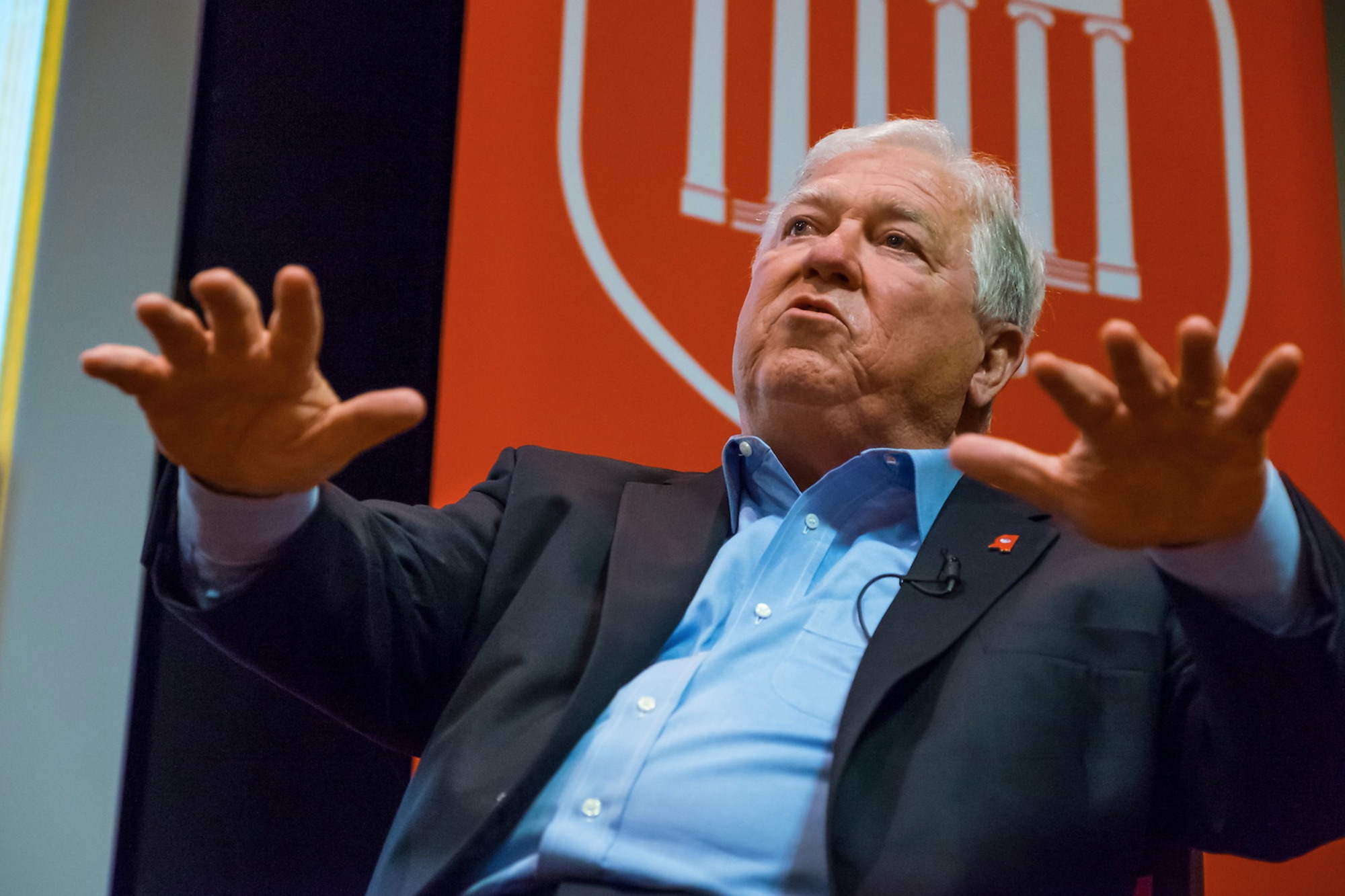
The press release also includes a quote from Jesse Holland, one of the first Black journalists assigned to cover the U.S. Supreme Court full-time and the second Black editor of The Daily Mississippian. In the quote, Holland says Norton is “the first one who told me he thought I could be a great reporter.”
That quote appears to have been repurposed from a May 2020 University of Mississippi School of Journalism and New Media press release at the time of Norton’s resignation as dean. But that was months before the Mississippi Free Press broke the news on Norton’s emails and reported that he had raised the possibility of resigning in hopes that it would preclude the release of the damaging emails.
The Mississippi Free Press reached out to Holland to ask whether he approved the reuse of the quote but has not yet heard back.
Norton Concealed Donor’s Role In Meek Controversy
The UM emails saga began last year when Transparent Ole Miss, a group of anonymous whistleblowers, emailed Norton seeking public records, including copies of his work emails that mentioned a range of keywords, including “Blake Tartt,” referring to a Houston businessman and 1984 alum.
Subsequent public-records requests revealed that Norton expressed concern about the information the group was asking for in an email to Erica McKinley, who was the university’s general counsel until this February.
“Erica, would it do any good if I just resigned as dean? Would the person then relent? We have so much we are trying to do right now,” Norton wrote McKinley on March 17, 2020. She vowed to handle the request even as university officials were scrambling to adjust to the early days of the COVID-19 pandemic.
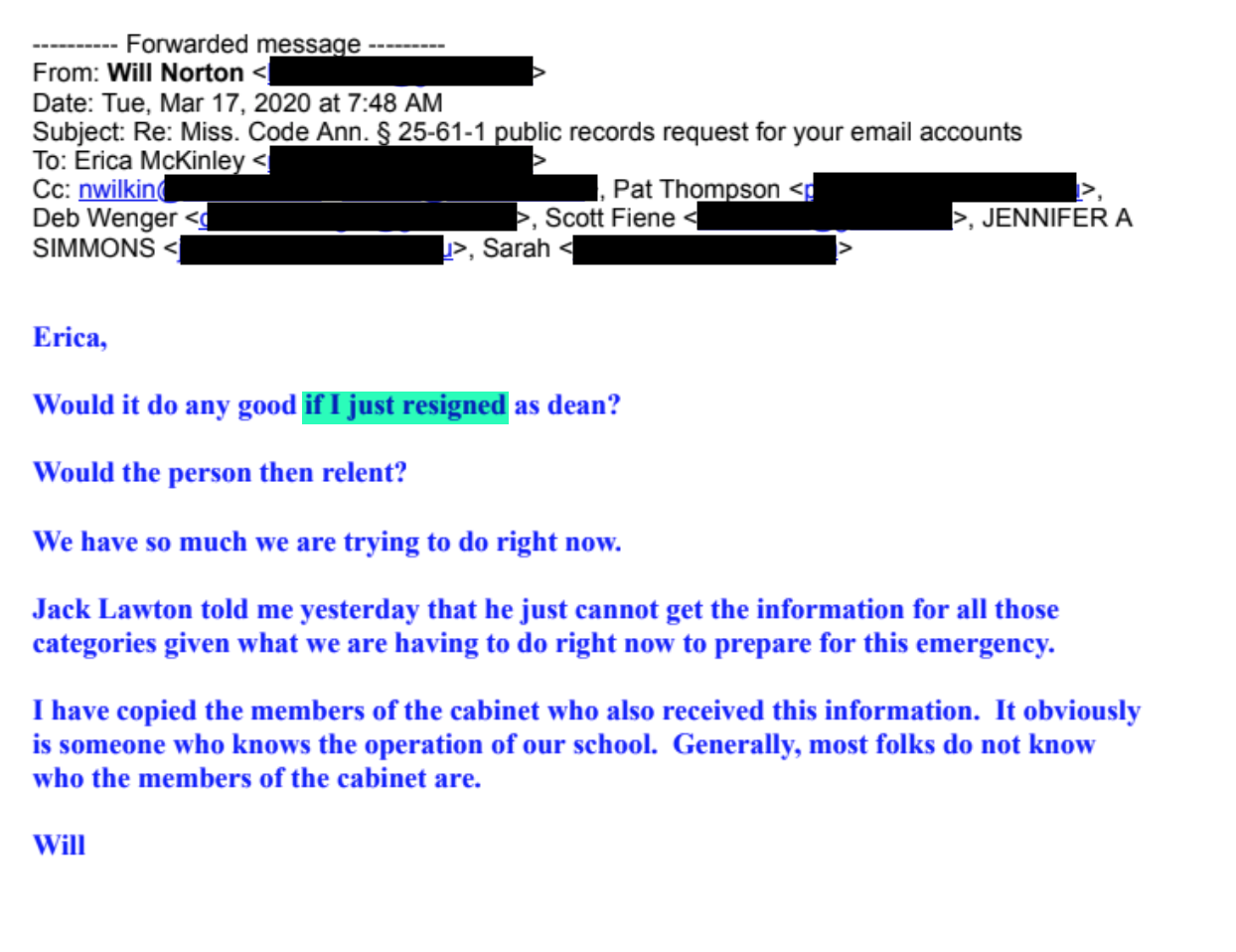
By March 29, 2020, copies of emails between Norton and Tartt from the fall of 2018 began circulating among members of the faculty and administration, including one in which Tartt sent Norton a photo he said he had taken on The Square in Oxford showing Black women enjoying a night out in town.
“I took this picture. It was taken from the steps of the Chop House just after the after the (sic) bars closed Saturday. I went to check on my property. You know Oxford and Ole Miss have real problems when black hookers are working on Jackson avenue. The African American visitors were competing for her affection,” read one September 2018 email that Tartt sent to Dean Norton. “It made me sick. … I happen to know what happens when a place is overtaken by the wrong elements.”
As he did in numerous other instances, Norton responded without criticizing the wealthy businessman who he hoped would give a sizable donation to the school. “Blake, I have been really disappointed for a long time with the way this culture is going,” the journalism dean wrote back the next morning.
Days after Norton received Tartt’s email with the photos of Black women in a tight-fitting clothes on The Square, the journalism school’s founding donor and namesake, Ed Meek, used one of Tartt’s photos in a Facebook post calling on others to “protect the values we hold dear that have made Oxford and Ole Miss known nationally.”
Then-UM Chancellor Jeffrey Vitter put out a statement that day, condemning Meek’s post for having an “unjustified racial overtone”—remarks Dean Norton would echo the next day, decrying Meek for his “reprehensible” words and calling for his name to be removed from the journalism school.
The school erased Meek’s name from its building soon after, but Norton did not speak up about Tartt’s role despite having received the emails. After Vitter stepped down later that fall, Tartt served on the search committee to find a new chancellor. Emails show the journalism dean and other UM officials continued courting Tartt’s financial support for more than a year after the Meek incident.
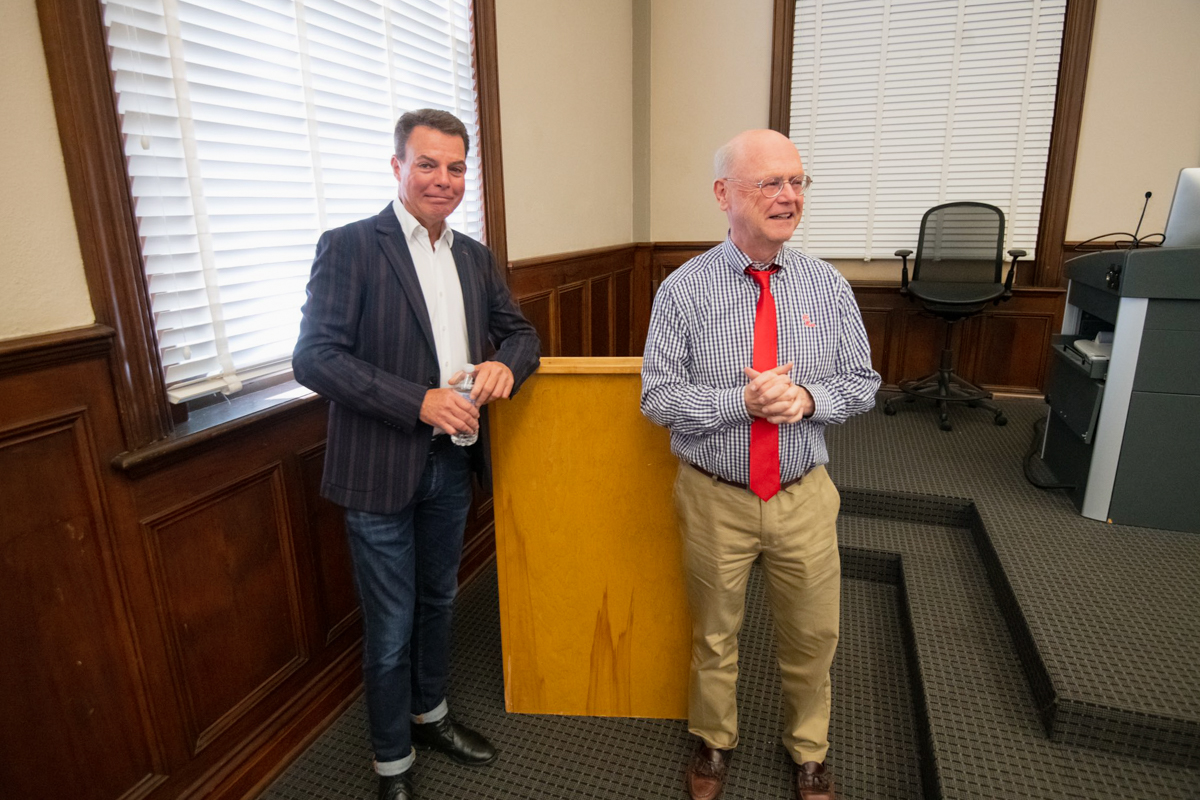
After the whistleblowers obtained Norton’s emails, a number of people, including the University Ombuds Paul Caffera and then-UM Vice Chancellor for Diversity and Inclusion Katrina Caldwell, contacted Provost Wilkin with copies of some of the most offensive ones. In one email, Norton appeared to refer to Shepard Smith, a famous gay former student who has hosted cable news shows at Fox News and CNBC, as “very troubled” after mentioning that he was once “married to a fine young woman.”
Several weeks later, on April 23, 2020, Norton told faculty during an 11 a.m. Zoom meeting that he had an afternoon meeting with the provost. Just before 5 p.m., Wilkin emailed the journalism school faculty and students saying Norton had “decide(d) to return to the faculty.”
Despite continuing to receive a sizable salary, Norton did not teach during the fall 2020 semester and taught only three classes in spring 2021, including a small graduate class. In May 2021, he quietly departed the university.
Norton has never publicly addressed the controversy over his emails and has not responded to a number of requests for comment since summer 2020.
‘The Organizations Roll On Doing What They Do’
Since its founding, the Overby Center has often hosted well-known national power brokers in politics and journalism for live discussion panels and talks. Such guests have included former Mississippi Gov. Haley Barbour, an international lobbyist and University of Mississippi graduate, who was once the chairman of the Republican National Committee; retired NBC Nightly News anchor Tom Brokaw; and former NBC News chairman Andy Lack, who stepped down there following a rocky tenure that included the network’s decision not to air Ronan Farrow’s exposé on Harvey Weinstein before allegations of sexual misconduct broke. Lack is also the founder of online news publication Mississippi Today, where Norton served as a board member before resigning in July 2020 ahead of the UM Emails stories’ publication.
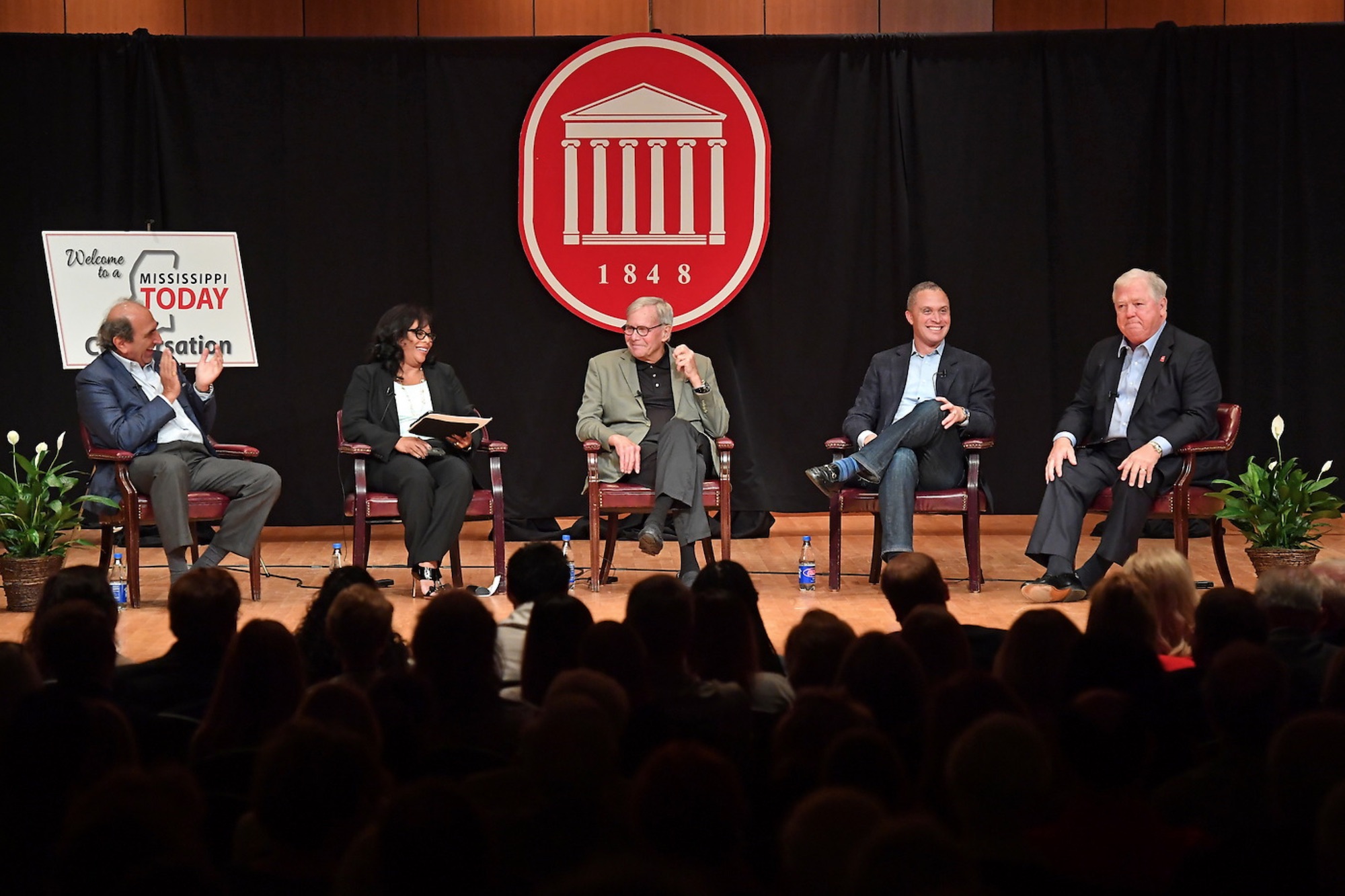
The emails the whistleblowers gathered includes exchanges between Norton and Tartt about a New York Times article on Lack’s handling of the Weinstein story and sexual misconduct allegations against the network’s own Matt Lauer. In one Aug. 31, 2018, email, Tartt asked Norton if he thought the story would affect Lack’s future at NBC.
“Blake, I do not know,” Norton replied. “A lot of things have happened in the last 10 years that I did not think would happen, but whether Andy Lack survives another 3 months or another year and a half, really will not matter. They will have a new chairman at NBC News, and that will not affect things very much. The organizations roll on doing what they do.”
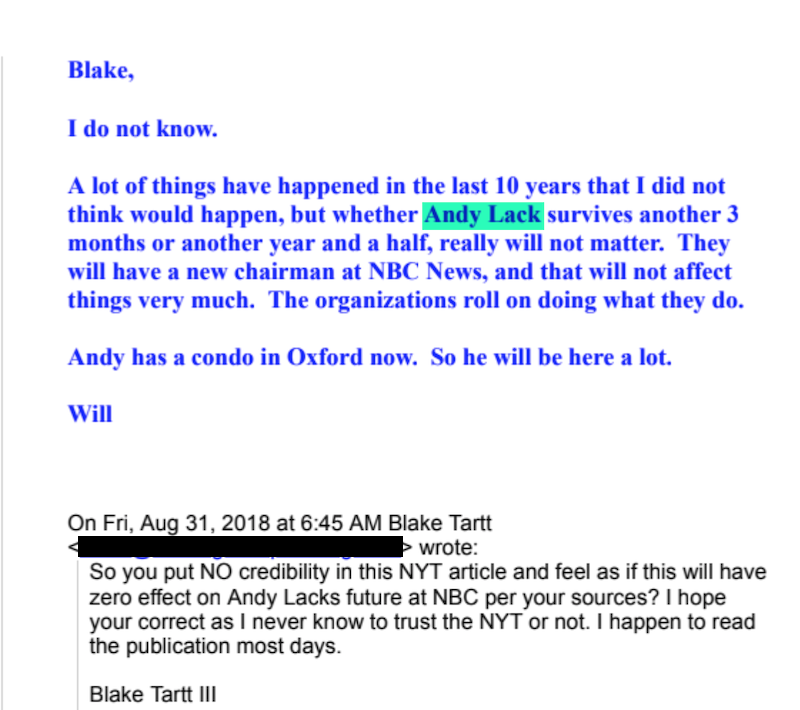
Historian Fired After Criticizing Overby’s Private Prison Ties
Like Norton, Overby’s name has cropped up in controversies surrounding the university in recent months, too. Last December, Christian Middleton reported for the Mississippi Free Press that Garrett Felber, an anti-racist history professor and prison abolitionist, claimed the university had fired him because of his activism. At the time, the history department chair said she had “lost confidence that an untenured faculty member would act in good faith and be responsive to her repeated efforts to help him succeed.”
But emails this reporter obtained in 2020 show that top-level UM officials were concerned over criticisms Felber had made about Charles Overby and the university at a December 2019 prison abolition conference. There, the historian had drawn a line between the university history of slavery, its part in the creation of the slave plantation-inspired Parchman Prison, and Overby’s ties to the private prison industry.
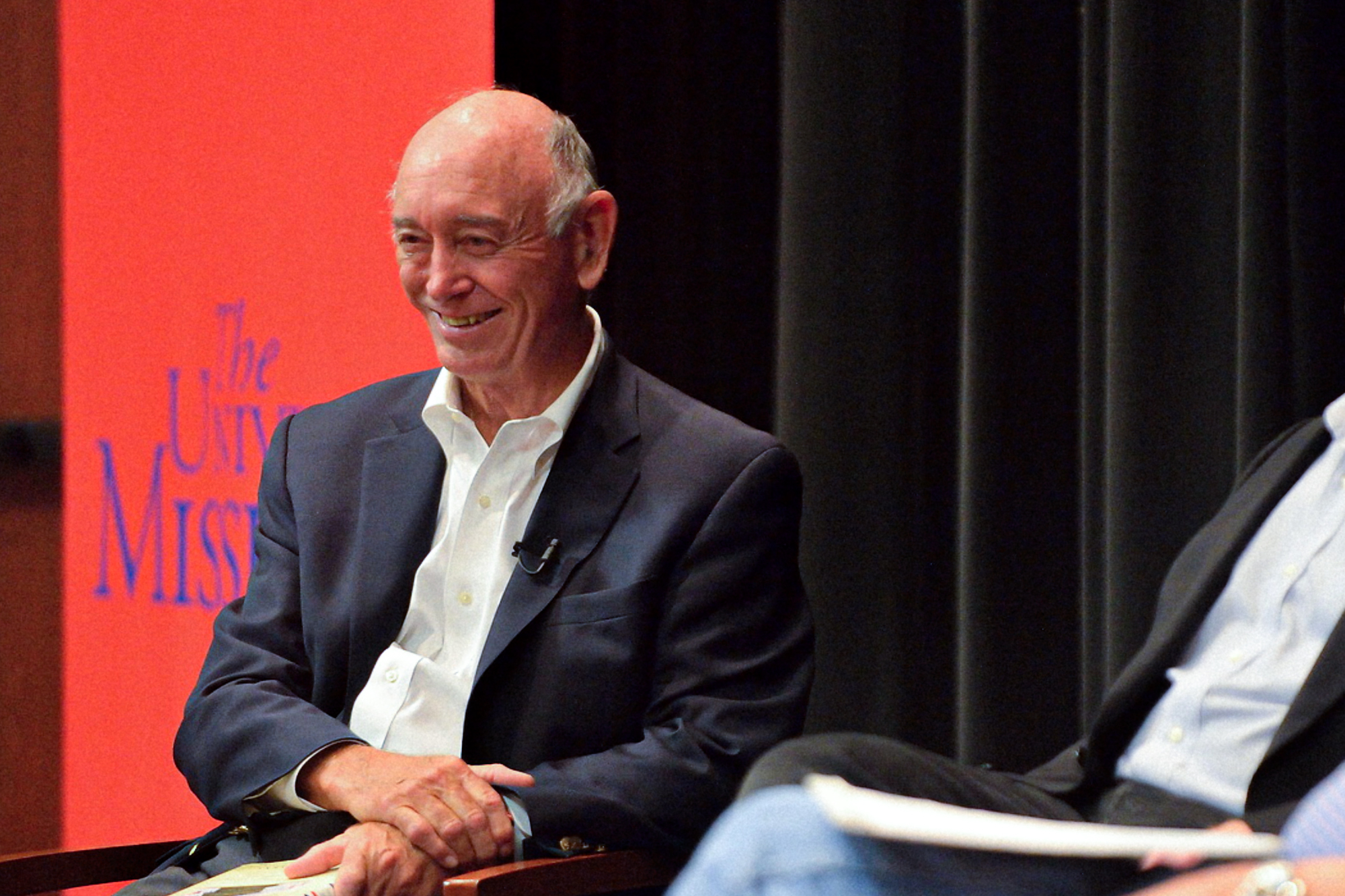
At the conference, Felber recited Overby’s history, starting with his time as the editor of UM’s student newspaper in 1969. During his career, Overby served as the executive editor of The Clarion-Ledger in Jackson. Later, he was the CEO and chairman of The Freedom Forum, a nonprofit that advocates for the free press, from 1989 to 2011. During Overby’s tenure, The Freedom Forum donated $5 million to establish the Overby Center on UM’s campus in 2001.
That same year, Overby became the director of CCA, the Corrections Corporation of America. CCA has since rebranded as CoreCivic, the second largest private-prison company in the U.S.
“Since then, Overby has received an annual salary and stock options from CoreCivic, and his current shares in the company are nearing $1.5 million, and he has sold over half a million dollars in stocks,” the history professor said.
That morning, officials in the University of Mississippi Office of Communications & Marketing, along with some in the School of Journalism and New Media, watched with concern as tweets rolled in with hashtags like #CharlesOverby or #UMPrivatePrisons.
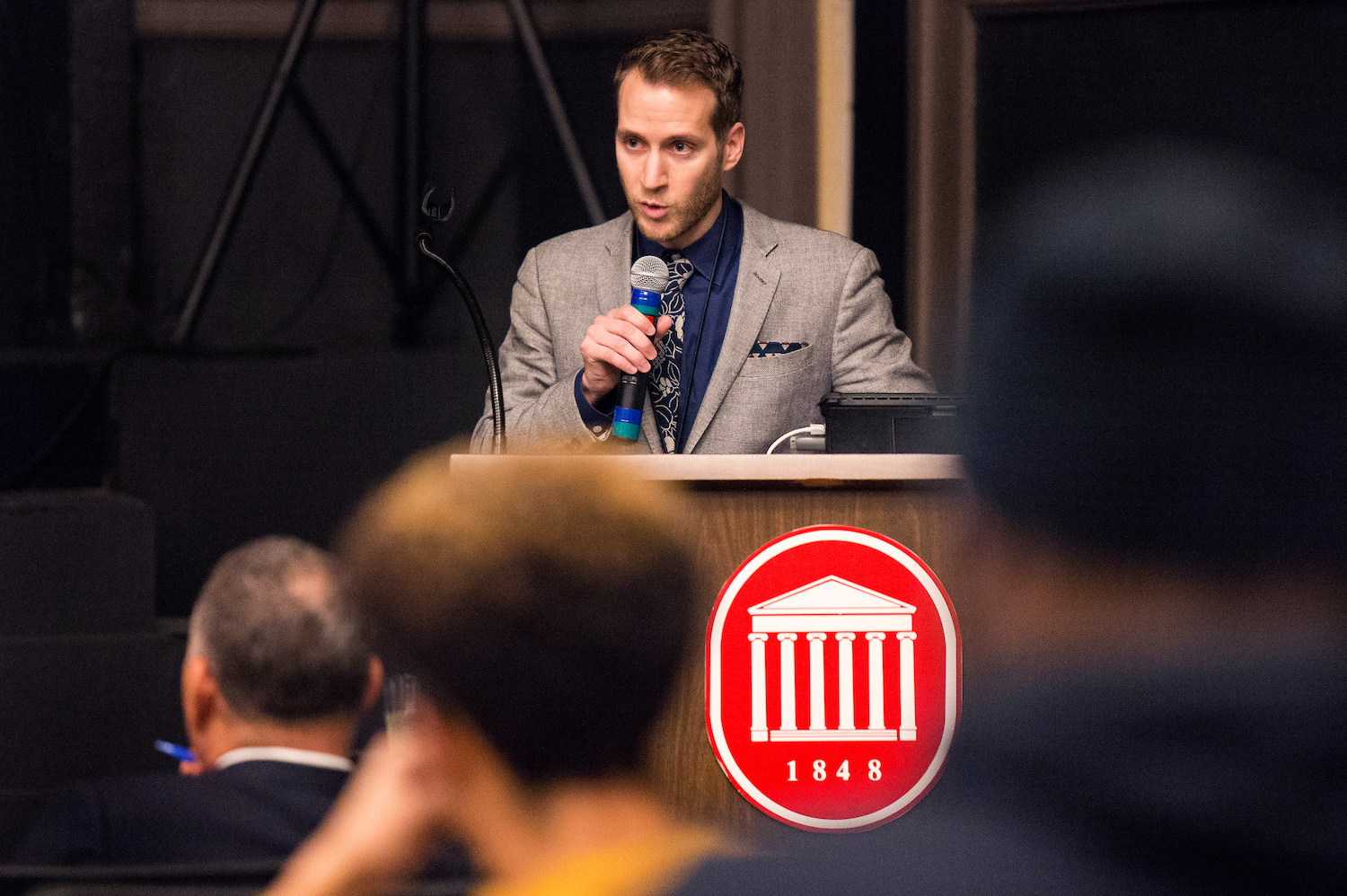
A batch of emails the Mississippi Free Press obtained from a group of anonymous whistleblowers who acquired them through a public-records request show that Norton, who was then the journalism school dean, shared Overby’s contact information with Jim Zook, UM’s chief marketing and communications officer.
“Hi Charles — I want to let you know that our Univ Mktg & Comms team is monitoring activity on the hashtag that emerged this morning from the MUMI conference,” Zook wrote in an email to Overby at 12:21 p.m. on Dec. 5, 2019. “The uptake seems to be confined to conference attendees and their sympathizers at this point, but we all know how quickly that can change.
“I’ve discussed this with Noel as well, and we certainly don’t support this type of personal targeting of members of our community,” he continued, referencing the provost, Noel Wilkin. “At the same time, we don’t want to do anything proactive that would elevate it further, but we will continue to evaluate that approach as events warrant.”
In the year that transpired between the December 2019 MUMI conference and Felber’s December 2020 firing, two groups of whistleblowers, Transparent Ole Miss and Ole Miss Information, obtained the trove of emails that included Norton and Tartt’s inflammatory emails. Among the thousands of emails were many showing how some other officials at the university had also labored to appease donors who expressed racist sentiments or longed for a return to the university’s Confederate-flag waving past.
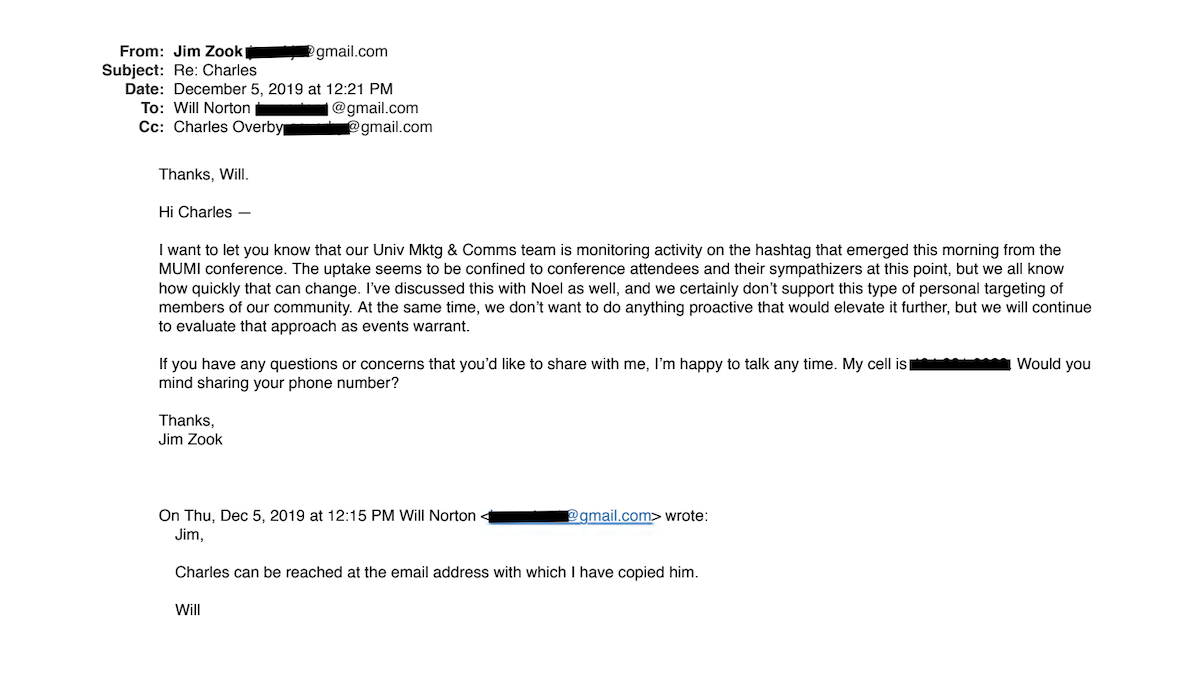
After the Mississippi Free Press published the initial three-part UM Emails exposé on the story behind the September 2018 scandal and wealthy donors’ outsize influence at UM, Felber criticized the university in a series of tweets, accusing them of “prioriz(ing) racist donors over all else.” In July, Felber announced that he had reached a settlement with UM and had accepted a faculty fellowship at Yale University.
“I was terminated because of my public statements, including legitimate criticisms of the university. Rather than go to court and seek reinstatement, I have chosen to move on and continue my work from a position outside this university,” Felber said in a statement on July 29.
Like Norton, Charles Overby has not responded to multiple requests for comment from this reporter, including one yesterday.


